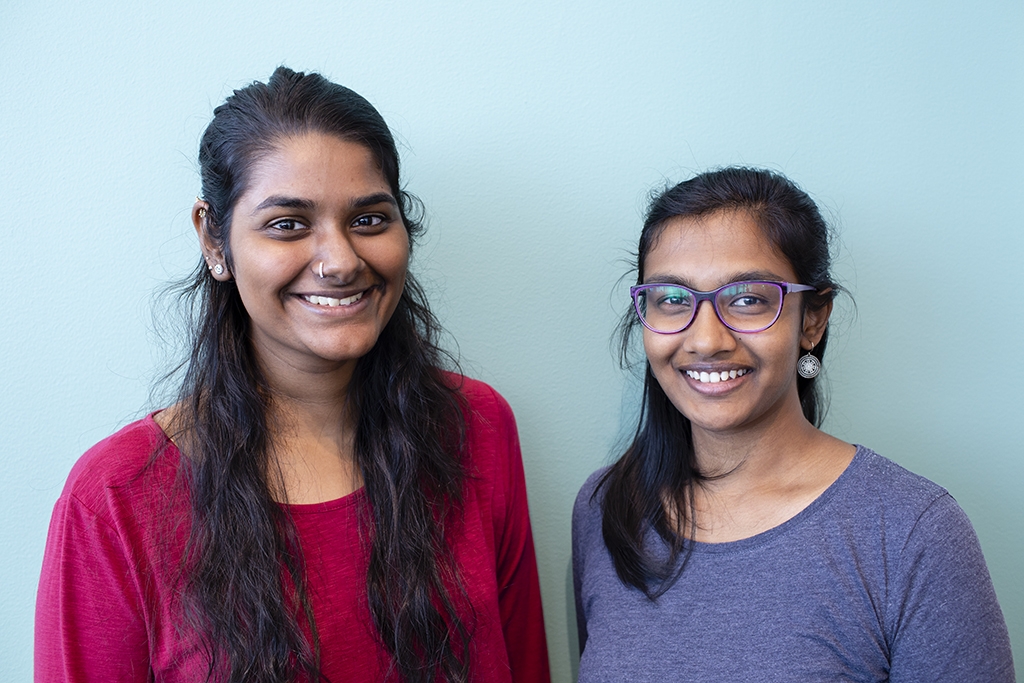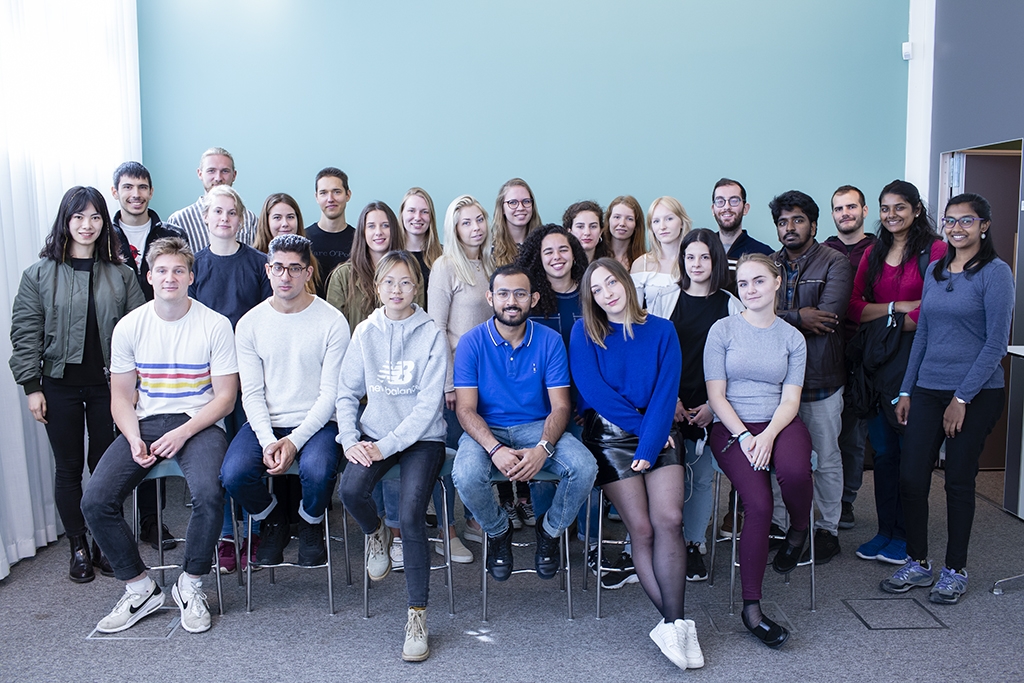New group of students to unique master’s program
Today, SciLifeLab welcomes new students to the master’s program Molecular Techniques in Life Science, a unique collaboration between Karolinska Institutet, KTH Royal Institute of Technology and Stockholm University. The program is to a large extent held at SciLifeLab in Solna.
The two-year master’s program prepares students for a professional research career in life science, with particular focus on molecular techniques for disease therapies and diagnostic tools, as well as bioinformatics and programming. This combination was a major factor that sparked the interest of master’s student Maithreyi Suresh Iyer, apart from her already established interest in Karolinska Institutet due to its high ranking and involvement in the Nobel Prize.
“This program has the perfect blend, it really incorporates modern technologies with life sciences for translational medicine”, says Maithreyi Suresh Iyer.

Master’s student Ashwini Girishkumar agrees.
“Most existing courses are either purely research, like wet lab research, or bioinformatics. I like both of them, so I was really happy when I found this blend, it was the best of two worlds”.
Is there something you look forward to after hearing today’s introduction?
“I was excited to hear about the PhD mentor program. I think it will be really nice to be able to work with one particular lab and get to know what’s happening within the lab and how people work there, because each lab usually has its own ethics and way they function”, says Ashwini Girishkumar.
Maithreyi and Ashwini are in good company. Out of 300 applicants, 26 students from all over the world was accepted to the program, which is the only master’s program in Sweden that is a collaboration between three universities.





